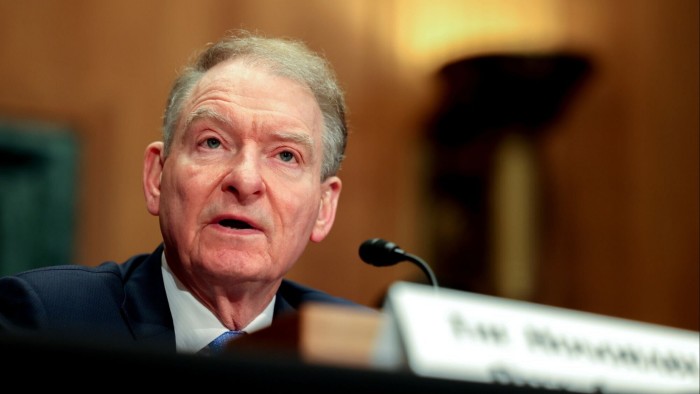Stay informed with free updates
Simply sign up to the US financial regulation myFT Digest — delivered directly to your inbox.
The writer is the president and chief executive of the Investment Company Institute
The challenge ahead for Donald Trump’s nominee for chair of the Securities and Exchange Commission is to show how the securities regulator can do its part in fulfilling the president’s promise to revive the American middle class. To do this, an SEC run by Paul Atkins should focus on innovation, efficiency and the needs of Main Street investors.
One of the best ways to deliver on this promise is by expanding access to private markets for retail investors. By modernising SEC regulations, the administration can level the playing field, ensuring that attractive investment opportunities are not the exclusive domain of the wealthy.
Private markets have seen explosive growth over the past decade, growing from under $10tn in 2012 to nearly $25tn today. Institutional investors, including public pension funds and insurers, have taken advantage of this trend and its offer of potentially higher returns compared to public markets. In fact, industry reports note that institutional investors have historically held higher average allocations to alternatives than individual investors — 25 per cent compared to 5 per cent.
The decline in publicly traded companies has further exacerbated this disparity between those with access to private markets and those without. In 1996, there were more than 7,300 publicly listed companies in the US. By 2024, that number had dropped to about 4,300. As more companies choose to remain private longer, the wealth-generating potential of these investments has become increasingly concentrated in the hands of institutional and high net-worth investors.
Critics argue that expanding private market access to retail investors would expose them to excessive risk. Without a doubt, investor protection and suitability should be paramount considerations. Given that, regulated funds are the natural bridge to allow retail investors greater access to private markets. Regulated funds must follow strict legal requirements that include robust oversight from an independent board, limitations on leverage and transactions with affiliates, and other protections, including shareholder disclosure requirements.
Atkins said at his confirmation hearing last week that the rules ensuring funds have to diversify investment portfolios were “a key investor protection”. But the SEC can still provide flexibility by lifting staff guidance that restricts retail-facing funds from investing more than 15 per cent of their assets in private funds. Fund managers, who already invest in private markets on behalf on institutions like pension funds serving firefighters, police officers and teachers, show that it is possible to tailor products that align with investors’ financial goals while maintaining transparency and strong oversight.
The SEC can also remove barriers to offering listed closed-end funds, vehicles that issue a fixed number of shares that can be traded. These are ideally positioned to invest in less-liquid private market assets. Unfortunately, they are not serving this need because the existing regulatory framework makes them highly vulnerable to attack by predatory activists seeking short-term profits. The SEC can protect fund investors by allowing boards to implement common sense anti-takeover measures.
This includes approving proposed exchange rules that would allow CEFs to operate like other SEC-regulated funds and not have to hold annual shareholder meetings. Annual shareholder meetings provide these activists with the opportunity to repeatedly threaten CEFs, forcing them to spend an inordinate amount of time and resources defending themselves.
Another priority of the Trump administration is eliminating outdated regulatory burdens. The SEC’s requirement that fund communications be sent via snail mail paper copies unless a customer specifically opts out is a great example of a rule that should be updated. Establishing electronic delivery as the default delivery method would bring regulatory requirements in line with modern technology and investor preferences.
And finally, the SEC can foster innovation by enabling funds to offer both mutual fund and exchange traded fund share classes, an efficiency-enhancing structure that has thus far been limited to a single fund sponsor. Acting SEC chair Mark Uyeda recently announced that he has already directed staff to look closely at the issue. If confirmed as SEC chair, Atkins is well-positioned to spearhead such reforms and allow more Americans to benefit from our capital markets.

